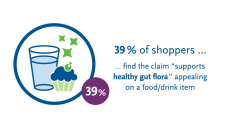Onion by-products to offer functional ingredients
processing by-products, researchers from Spain have reported that
onion wastes may be a source of antioxidant and anti-browning
bioactive ingredients.
The research, published in the peer-review journal Food Chemistry, highlights the potential of a paste made from by-products of onion processing to expand the options available to food formulators looking for natural antioxidants for food. "In this study it was shown that processing of 'Recas' onion wastes to obtain a paste (mixture content) and applying a mild pasteurisation were the best alternatives to obtain an interesting stabilised onion by-product with good antioxidant properties that made useful its use as functional food ingredient," wrote lead author Eduvigis Roldan and co-workers from Consejo Superior de Investigaciones Científicas (CSIC) in Madrid. In addition to providing potentially less expensive ingredients with the potential to add value to food formulations, the research suggests a solution to the disposal issues associated with the 450,000 tonnes of onion wastes produced in the European Union every year. "Onion wastes are not suitable for fodder, or landfill disposal due to the rapid growth of phytopathogens, e.g. Sclerotium cepivorum (white rot)," explained Roldan. "Valorisation of by-products, particularly exploitation of them for profitable production of food-grade products will benefit the onion producers and processors." The Madrid-based researchers considered two Spanish onion cultivars - 'Figueres' and 'Recas' - as sources of value-added ingredients. The wastes were frozen, pasteurised and sterilised, and their bioactive composition, antioxidant activity and capacity to inhibit polyphenol oxidase (PPO) enzymes measured. The results showed that the Recas by-products offered the most interesting potential for use as a food ingredient. The frozen Recas paste was found to contain the highest total quercetin content of 4431 mg per 100 grams of dry weight, while the pasteurised Recas product contained 721 mg of quercetin per 100 grams of dry weight. Levels of PPO, used as a measure of the anti-browning activity, with the frozen Recas paste found to significantly reduce the avocado PPO activity by 57 per cent while other frozen Recas products averaged a 40 per cent reduction in PPO activity. Additionally, pasteurised Recas paste and juice were associated with PPO activity reductions of 53 and 66 per cent, respectively, report the researchers. "By-products derived from the manipulation and preparation of onion for its marketing involves a great economic loss for that sector food industry," wrote the researchers. "From this study, it could be concluded that there is a real possibility of using those onion by-products for developing natural food ingredients with functional properties," they concluded. According to a 2003 report by Frost and Sullivan, the market for synthetic antioxidant like butylhydroxyanisole (BHA) and butylhydroxytoluene (BHT) is in decline, while natural antioxidants, such as herb extracts, tocopherols (vitamin E) and ascorbates (vitamin C) are growing, pushed by consumer desire acceptance and easier market access. The new study was funded by the Spanish Ministry of Science and Technology. Source: Food Chemistry Volume 108, Issue 3, Pages 907-916 "Characterisation of onion (Allium cepa L.) by-products as food ingredients with antioxidant and anti-browning properties" Authors: E. Roldan, C. Sanchez-Moreno, B. de Ancos, M.P. Cano





















